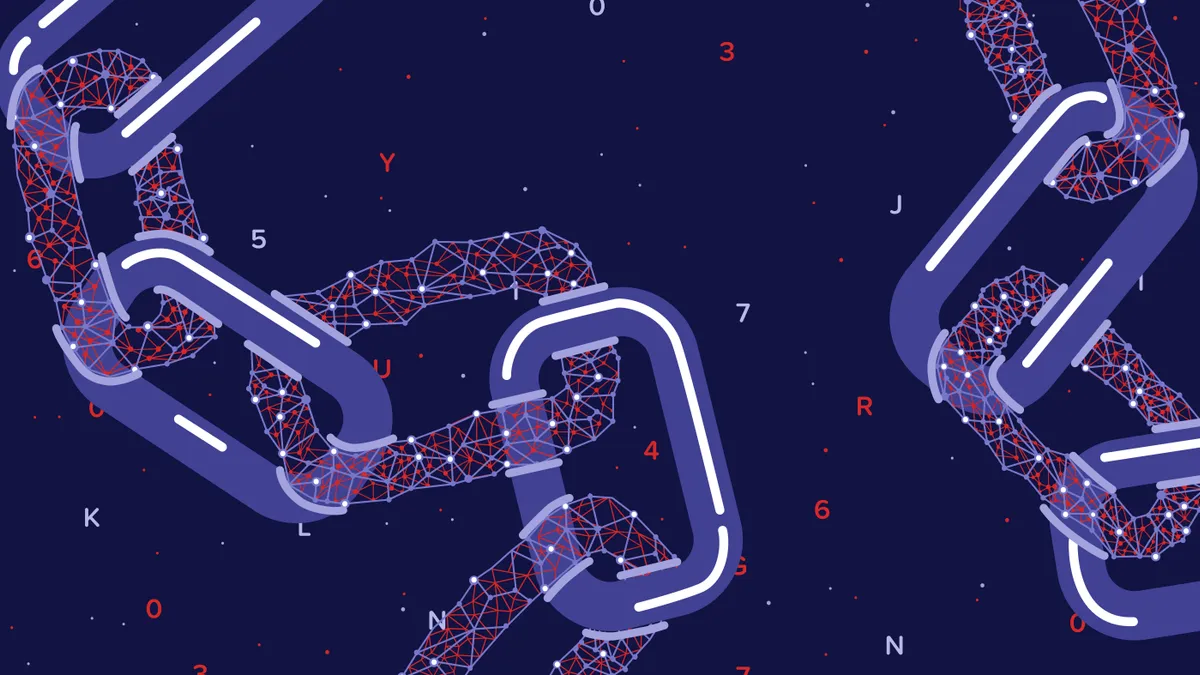Dive Brief:
- The European Union Intellectual Property Office (EUIPO) and the European Commission are hosting a worldwide competition to evaluate blockchain solutions that may help crack down on intellectual property rights (IPR) violations, like counterfeiting and piracy.
- The "EU Blockathon" involves 11 teams of "coders, blockchain experts and stakeholders" to present their blockchain solutions to address three challenges: how to reassure a consumer the product they bought is real, how to help customs officials intercept counterfeits and how to help logistics providers identify and eliminate counterfeits from their shipments.
- According to the event's website, 10% of EU consumers in 2017 accidentally bought a counterfeit and 35% "wondered whether the product they had purchased online was real or fake."
Dive Insight:
The EU describes the Blockathon as the first step to "using blockchain to co-create the future EU anti-counterfeiting infrastructure." From this competition, the EU could develop some tangible ideas to start cracking down on counterfeits across European supply chains.
"Intellectual property rights intensive industries contribute 42% to the EU’s GDP and directly or indirectly support 38% of jobs," according to the EUIPO press release. In other words, protecting intellectual property and strengthening supply chain security is imperative to continued economic growth.
But it isn't just an EU problem.
In the U.S., the rise of counterfeits has paralleled the rise of e-commerce. Customs and Border Protection recently outlined a four-step plan to eliminate counterfeits from entering the U.S. through global supply chains after the Government Accountability Office found 20 out of 47 products sold by third-party sellers on e-commerce sites were counterfeit.
Blockchain could help shippers, carriers, 3PLs and e-commerce sites maintain an immutable record of a product from production line to the consumer's front door to prove authenticity.
If it works, it could boost shippers' and e-commerce companies' brand image, and potentially save millions of dollars in costs across the supply chain. The big problem, then, will be getting all of one's partners on board with one blockchain platform, or else adopting another tech solution to sync them, which may be easier for some industries than others.














